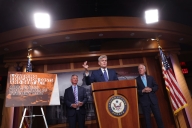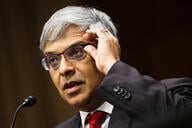You have /5 articles left.
Sign up for a free account or log in.
Athletic officials at Radford University were already in trouble when the National Collegiate Athletic Association learned that players on the men’s tennis and men’s basketball teams, and one prospective basketball recruit, received impermissible benefits such as transportation, lodging and meals. But university officials made the case all the worse by “not only providing false and misleading information, but the encouragement of a student athlete to do the same,” Britton Banowsky, commissioner of Conference USA and chair of the NCAA’s Committee on Infractions said in a call with reporters Friday. “This conduct, which is really the essence of this case, is obviously inconsistent with the core values of honesty and sportsmanship, and completely counter to a coach’s responsibility to educate student athletes in their program.”
As punishment, Radford will receive public reprimand and censure; two years’ probation; a two-scholarship reduction in basketball for the 2012-13 and 2013-14 academic years; vacation of four wins during the 2010-11 season, when an ineligible athlete competed, and a $2,000 penalty ($500 for each game in which said athlete played); and, self-imposed by the university, a reduction of two official paid visits in basketball during the 2011-12 academic year and the suspension of the head tennis coach during the 2011 season. In addition, the NCAA imposed a five-year "show cause" penalty on any institution that hires two former assistant basketball coaches and a former director of operations, requiring them to explain why they should not limit those officials' recruiting activities.
Radford is the latest to be reprimanded for a deliberate cover-up, following the University of Tennessee and Louisiana State and Ohio State Universities last year. Not only did coaches knowingly violate NCAA rules, the public infractions report says, the head basketball coach in interviews during the investigation didn’t disclose several instances of students getting impermissible travel and lodging from other coaches, and in one instance lied about whether he was aware of such activity. He also told staff and coaches not to provide further information to the NCAA, the report says. It goes on to say that the athlete whom the coach encouraged to “provide false and misleading information” to the committee ended up withdrawing as a student after undergoing “serious emotional distress.”
This was Radford’s first major infractions case.




